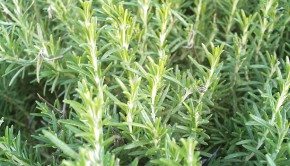Medicinal Herbs Minimize Opiate Withdrawal Symptoms
For hundreds of years, the people of Vietnam have used opium as a sedative and cure-all. Opiate addiction is common, especially in rural areas. Traditionally, the elders of each family have been allowed to continue their opium use between harvests, but younger people have needed to withdraw from opium every year between harvests and stay clean until the opium is plentiful again.
There are natural solutions for drug addiction. Heantos is a combination of herbs used for opiate addiction treatment and a successful alternative to Western medical drug replacement prescriptions. In Vietnam, the local herbalists have used different mixtures of indigenous plants and herbs to help the addicted villagers. Simpler versions of Heantos have been always used in these villages to help the withdrawal be more comfortable.
Heantos was first created in a laboratory in the 1980s as a potent tea by Dr. Tran Khuong Dan, one of Vietnam’s foremost herbalists, whose father and brother died addicted to opiates. To find a cure for addiction using traditional, natural ingredients, he traveled the length and breadth of his country, where many people still swear by herbal cures. He conferred with the local herbalists and healers, culling secret homemade remedies used for addiction treatment for ages.
He scoured traditional Chinese and modern medical texts to learn as much as he could about addiction and methods of treatment, and then, he made himself dependent first on opium and then on heroin. After six months of intensive trials using his own body as a research laboratory, he developed a new traditional medicine remedy from extractions of 13 plants and herbs. When he broke his addiction, he knew he had succeeded in his quest with what would be known as Heantos.
The plants and herbs in the Heantos4 formula are no secret include Radix codonopsis, Gelatinum asini, Ophiopogon japonicus, Astragalus membranaceus, Glycyrrhiza uralensis, Angelica sinensis, Rehmannia glutinosa, Stephania, Zingiber officinale, Cinnamomum cassia, Zizyphus sativa, Ziziphus jujube and Polygalae tenuifolia. Most of them can be found widely, but some are indigenous to Vietnam. There are no narcotics, psychotropic substances and nothing toxic, addictive or dangerous in Heantos, and there have been no reports internationally of any interaction of Heantos with any drugs or supplements.
Starting in 1995, the Vietnam Academy of Science and Technology cooperated with Dan’s group for scientific developments of Heantos. During almost 20 years of research on Heantos, the Vietnam Institute of Chemistry has also cooperated with international scientific institutions in the clarification of Heantos toxicology, chemistry and mechanisms of action. Clinical studies of Heantos by the United Nations Development Programme with the United Nations Office for Project Services, the University of British Columbia, in Vancouver, Johns Hopkins University, the Leibniz Institute of Plant Biochemistry and the University of Essen, in Germany, have all proven its safety and effectiveness as a gentle addiction detoxification, with no abuse potential.
The Vietnamese government reports that since 1991, more than 9,000 heroin, opium, and cocaine addicts have been successfully treated with Heantos. It has been proven to be completely nontoxic and non-addictive. It doesn’t affect heart rate, blood pressure, the heart or liver and has no side effects.
Twenty-one years ago, Richie Ogulnick set out to bring a different herb, Ibogaine (Tabernanthe iboga), to the world. Ibogaine is a naturally occurring psychoactive substance used in many countries to treat addiction to methadone, heroin, alcohol, cocaine, methamphetamine, anabolic steroids and other drugs. It is also used to treat depression and post-traumatic stress disorder.
Ogulnick has gathered an accomplished team of addiction experts and Ibogaine is used in dozens of countries with approximately 150 providers; however, it continues to remain illegal in the Unites States. Heantos is not as controversial; it is not illegal anywhere in the world. It is benign, gentle and can be utilized at a grassroots level by family and friends with supportive guidance and care. In 2014, Ogulnick traveled to Vietnam to spend a few weeks with Dr. Tran Van Sung, the leading authority in Vietnam on Heantos research. Ogulnick then founded Heantos.org to help more people throughout the world break free from chemical addictions.
Mary Ayers leads the San Francisco Heantos office as a detox support coach trained in harm reduction, somatics and evidence-based, complementary modalities, and she possesses a strong background in therapeutic herbalism and plant medicines. For more information, call 650-825-5135 or visit SanFranciscoHeantos.org or Heantos.org.


























